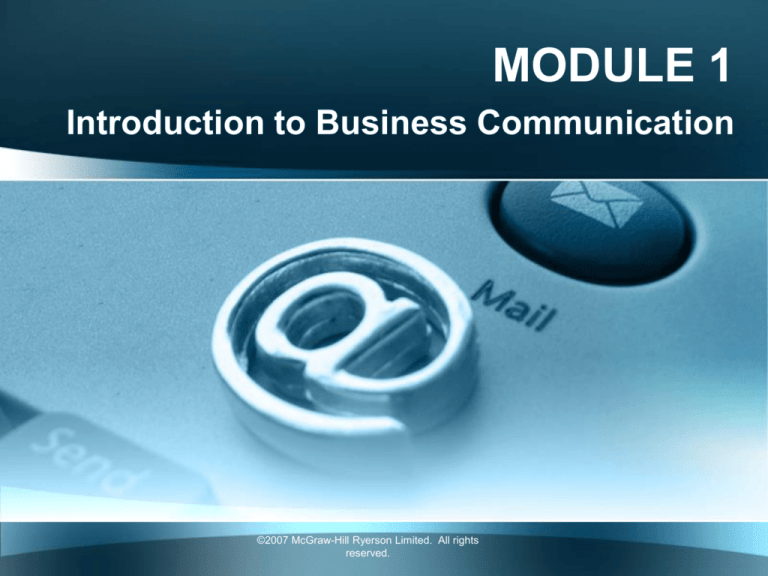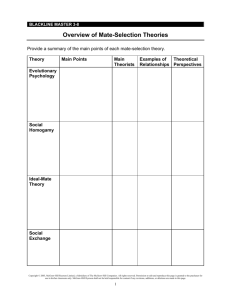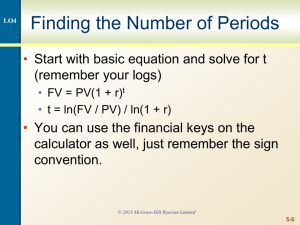
MODULE 1
Introduction to Business Communication
©2007 McGraw-Hill Ryerson Limited. All rights
reserved.
Module 1
Skills to:
• Identify the characteristics of effective
business messages
• Begin to analyze communication situations
©2007 McGraw-Hill Ryerson Limited. All
rights reserved.
Module 1 Outline
• Why do we communicate?
• How is business communication
different?
• What communication skills are integral to
business success?
• Will I really have to write?
• How much does correspondence cost?
©2007 McGraw-Hill Ryerson Limited. All
rights reserved.
Module 1 Outline (cont’d)
• What makes a message effective?
• How do I begin to analyze
communication situations?
©2007 McGraw-Hill Ryerson Limited. All
rights reserved.
Business Communication
Is business communication unique?
It is in the way it approaches…
Purpose
Audience
Information
Organization
Style
Layout
Visuals
…getting the job done!
©2007 McGraw-Hill Ryerson Limited. All
rights reserved.
Communication Goals
Communication makes things happen with
two audiences
Internal
Subordinates
Supervisors
Peers
External
Customers/Stockholders
Unions/Government Agencies
Press/General Public
©2007 McGraw-Hill Ryerson Limited. All
rights reserved.
Basic Purposes
Successful business communication will
•Inform
•Request
•Persuade
•And always it should
build goodwill!
©2007 McGraw-Hill Ryerson Limited. All
rights reserved.
Workplace Writing Myths
I won’t have to worry about writing
because…
• administrative staff will do all my writing and
editing!
• if I really need to communicate, I’ll write it
good once and use it again and again.
• accountants (or architects or ???) don’t
need to communicate!
• I’ll just pick up the phone.
©2007 McGraw-Hill Ryerson Limited. All
rights reserved.
Writing Costs
What is the real cost of
crafting a good message?
$20, $40, $60, $80, $100
What is the real cost of
crafting a poor message?
©2007 McGraw-Hill Ryerson Limited. All
rights reserved.
Communication Analysis
Successful business messages share
some things in common.
They are worked and re-worked
until they are
Clear
Concise
Comprehensive
Complete
Correct.
©2007 McGraw-Hill Ryerson Limited. All
rights reserved.
PAIBOC
P What are your purposes in communicating?
A Who is (are) your audiences?
I What information must your message include?
B What reasons or reader benefits can you use to
support your position?
O What objections can you expect your reader(s)
to have?
C How will the context affect reader response?
©2007 McGraw-Hill Ryerson Limited. All
rights reserved.
Why become a better communicator?
• Demand is increasing for those that can
communicate.
• Good writers save:
– Time
– Money
– Energy
• Good writers create and build goodwill.
©2007 McGraw-Hill Ryerson Limited. All
rights reserved.
Why become a better communicator?
The Conference Board of Canada lists these
traits as desirable in potential employees:
•Read and understand information regardless of
the format (words, graphs, charts, diagrams).
•Write and speak so that others pay attention and
understand.
•Listen and ask questions to understand and
©2007 McGraw-Hill Ryerson Limited. All
rights reserved.
appreciate other points of view.
Why become a better communicator?
The Conference Board of Canada lists these
traits as desirable in potential employees:
•Share information using a range of
technologies.
•Use relevant, field-specific knowledge to
explain ideas.
©2007 McGraw-Hill Ryerson Limited. All
rights reserved.



